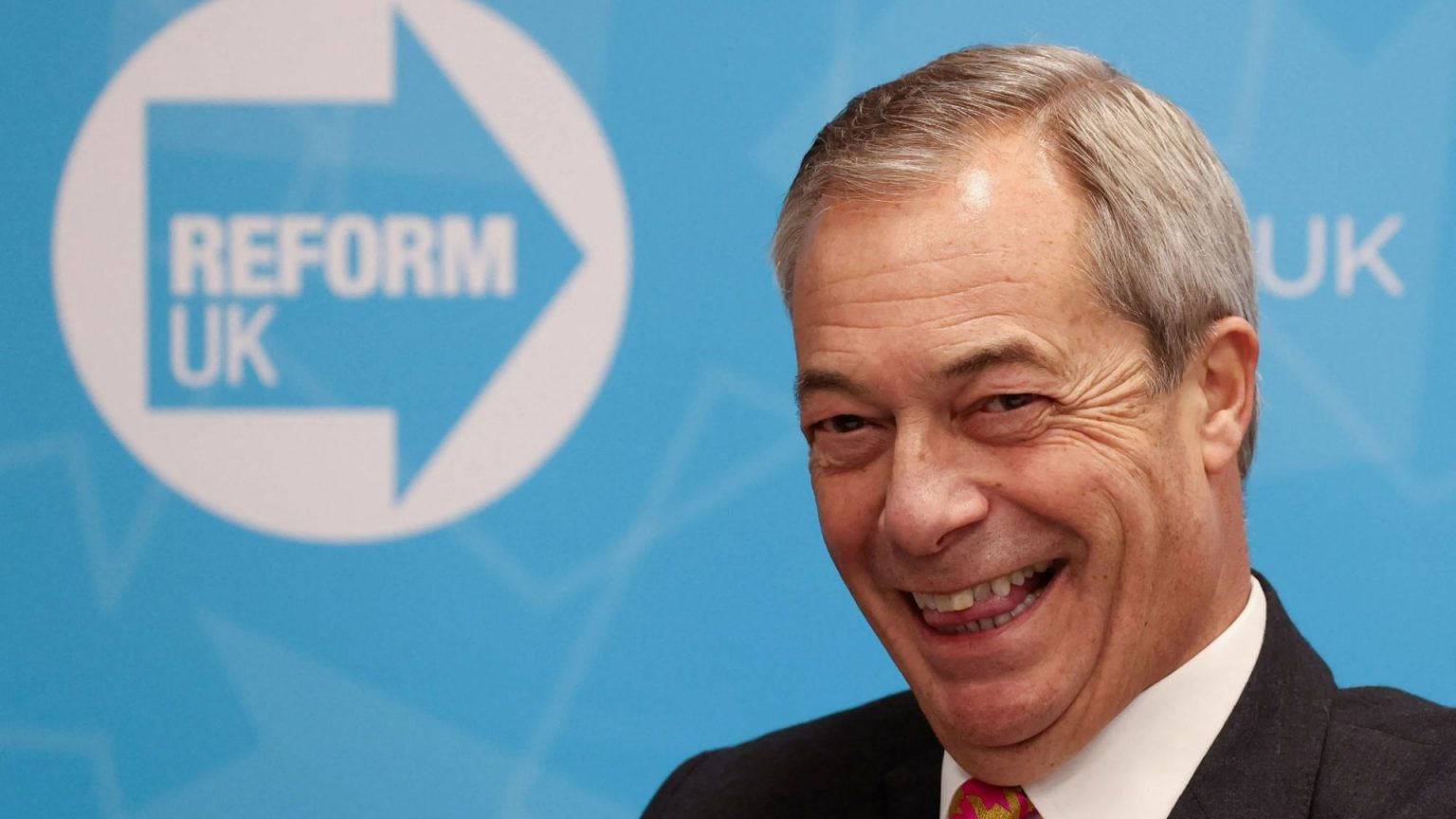Nigel Farage’s Reform UK party has achieved a historic milestone, topping a recent Sky News/YouGov poll for the first time. This surge in popularity, placing them a single percentage point ahead of Labour, signifies a potential seismic shift in the British political landscape. Reform’s ascent has been fueled by public discontent with traditional parties, record immigration figures, and controversies surrounding Labour’s recent budget proposals. This poll marks a significant turnaround for Reform, which garnered 15% of the vote but only secured five seats in the previous election. Meanwhile, Labour, which enjoyed a landslide victory in July, has seen a dramatic decline in support. The Conservative Party, under the leadership of Kemi Badenoch, remains in third place, struggling to gain traction with voters. The rise of Reform poses a serious threat to the established two-party system, potentially ushering in a period of political upheaval.
Reform’s growing popularity can be attributed to several factors, including Farage’s adept exploitation of public anxieties surrounding immigration and economic issues. Labour’s controversial budget, which included tax hikes and cuts to social programs, has further alienated voters, creating an opportunity for Reform to capitalize on public dissatisfaction. Additionally, Farage’s skilled use of social media platforms, particularly TikTok, has allowed him to connect with a younger demographic, expanding his reach and influence. The decline in support for both Labour and the Conservatives indicates a growing disenchantment with the traditional political establishment. This disillusionment has created fertile ground for Reform’s populist message to resonate with voters seeking alternative solutions.
Farage, a seasoned political operator, has demonstrably capitalized on the missteps of both Labour and the Conservatives. He has effectively positioned Reform as an alternative voice, attracting voters disillusioned with the status quo. His focus on issues such as immigration control and economic reform has resonated with a segment of the population concerned about the direction of the country. Furthermore, Farage’s ability to connect with voters on a personal level, both through traditional media and social media platforms, has further solidified his position as a formidable political force.
The poll’s results raise significant questions about the future of British politics. If Reform’s momentum continues, it could dramatically reshape the political landscape, challenging the dominance of the two main parties. The potential for a fragmented political system, with multiple parties vying for power, could lead to increased instability and difficulty in forming stable governments. The ramifications of Reform’s rise extend beyond the immediate political landscape, potentially influencing policy debates and impacting the country’s overall trajectory.
Beyond the current political climate, the rise of Reform underscores broader trends in Western democracies. Populist movements, often fueled by anti-establishment sentiment and concerns about immigration and economic inequality, are gaining traction across the globe. Reform’s success in the UK mirrors similar patterns seen in other countries, highlighting a growing dissatisfaction with traditional political parties and a desire for alternative solutions. The implications of this trend extend beyond individual countries, potentially reshaping the global political order and influencing international relations.
While Farage’s charisma and political acumen have undoubtedly contributed to Reform’s success, the party faces significant challenges in translating its rising popularity into tangible political power. The UK’s electoral system, which favors established parties, makes it difficult for smaller parties to gain significant representation in Parliament. Despite its growing support, Reform will need to overcome these structural hurdles to truly disrupt the existing political order. The party’s future success hinges not only on maintaining its current momentum but also on developing a comprehensive and coherent political platform that appeals to a broader electorate. Furthermore, Reform will need to demonstrate its ability to effectively govern and deliver on its promises if it is to solidify its position as a major political force.


